Cloud computing provides a framework for SaaS product creation by delivering a variety of services for creating, deploying, and running software products. This can substantially ease the development process, allowing developers to focus on the product rather than infrastructure and scaling difficulties.
The capacity to easily scale a product to meet changing user demand is one of the primary benefits of cloud computing for SaaS product development. Developers can use cloud computing to design software that can run on remote servers rather than local hardware. This means that when the number of users grows, the product may be scaled by adding more cloud infrastructure resources.This can be done quickly and easily, without the need for expensive hardware upgrades.
With cloud computing, SaaS products can be delivered over the internet, allowing customers to access the product from anywhere and at any time. This can provide a more flexible and cost-effective way of delivering software to customers.
Cloud Computing and SaaS Development – Understand the aspects
Cloud computing is a technology that allows users to access and use resources over the internet. This includes things like storage, processing power, and software. Cloud computing can be used to run applications, store data, and perform other tasks.
SaaS is a software delivery model in which software is hosted on remote servers. Cloud Computing, on the other hand, is a computing model in which resources, such as storage and processing power, are provided over the internet on a pay-as-you-go basis.
Software developers can build software that can be run on remote servers rather than local hardware. This can lower the cost and complexity of software development, as well as enable scaling a product to meet changing consumer demand easier. Migrating to Cloud computing can be a cost-effective and flexible option and also allows software to be supplied as a service means of distributing software to customers.
SaaS is built and run on top of Cloud Computing infrastructure. This means that SaaS applications are hosted on remote servers, which are managed and maintained by a third-party provider. Cloud computing providers like Amazon Web Services, Microsoft Azure, and Google Cloud Platform offer a variety of services that can be used to build and run SaaS applications. These services can include things like virtual machines, databases, and storage. Using cloud computing can make it easier to scale an application and manage its resources.
How does Cloud Computing Help SaaS?
Cloud Computing enables SaaS providers to scale their services quickly and easily. This is because resources, such as storage and processing power, can be easily added or removed as needed.
Cloud Computing also allows SaaS providers to reduce costs by eliminating the need for expensive hardware and software. This is because the provider can spread the cost of the infrastructure across many customers.
Cloud Computing also provides added security and reliability for SaaS providers. This is because the provider can manage and maintain the security and uptime of the infrastructure.
With the help of Cloud computing, SaaS providers can also offer a subscription-based pricing model, which allows customers to pay for the service on a monthly or annual basis, rather than having to make a large upfront investment.
SaaS providers can also focus on developing and improving their software, rather than worrying about the underlying infrastructure. This allows them to innovate and deliver new features and functionality to their customers more quickly.
In summary, Cloud Computing provides the infrastructure and resources needed to build and run a SaaS product, while SaaS is a software delivery model that allows customers to access and use the software over the internet. Together, they provide a cost-effective, scalable, and secure way to deliver software to customers.
Cloud computing also provides various services that can be used to simplify the development process. These services include storage services, database services, and computing services. Developers can use these services to store data, run computations, and manage databases without having to worry about the underlying infrastructure. This can save a lot of time and effort, as developers can focus on building the product itself, rather than worrying about the underlying infrastructure.
In terms of technology stacks, there are several options available for SaaS product development in the cloud.
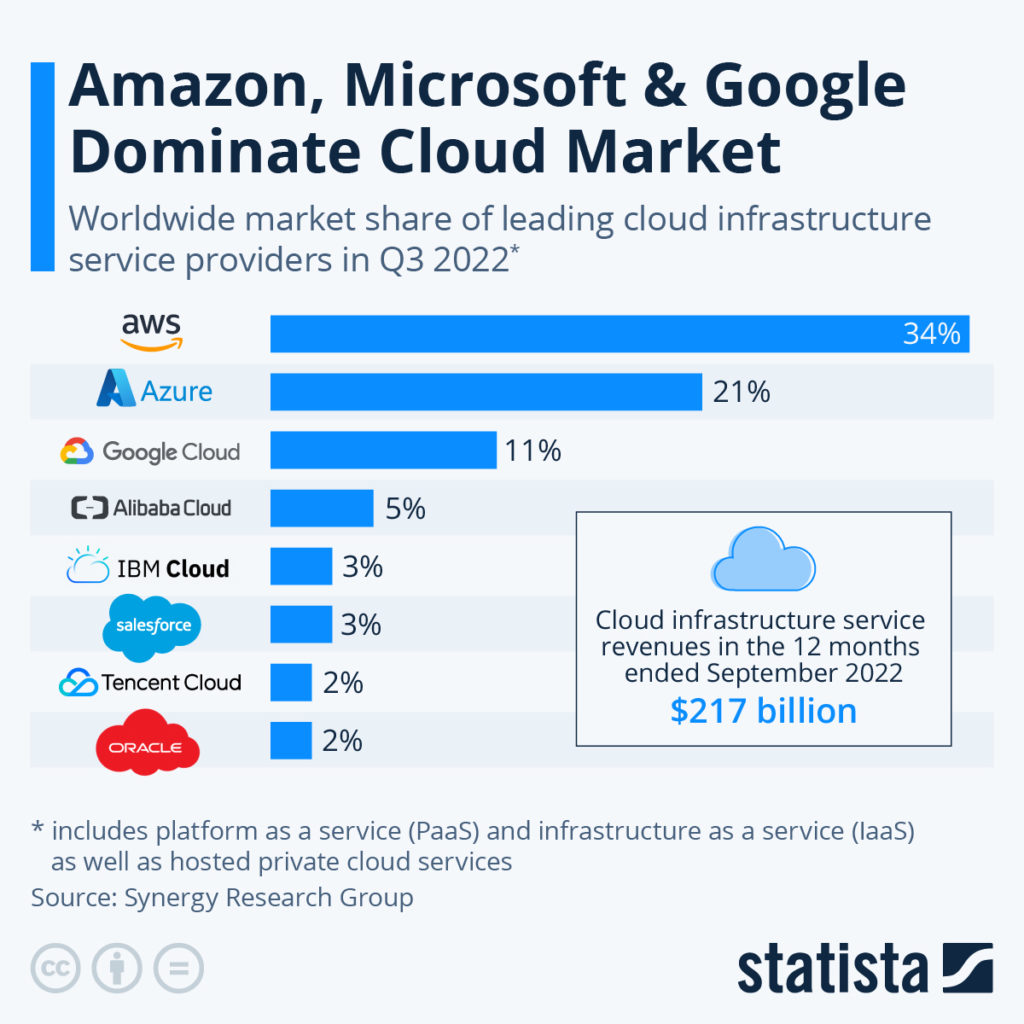
Table of Contents
List of 5 Best options available include:
1. AWS (Amazon Web Services)
AWS is one of the most popular cloud computing platforms and provides a wide range of services for software product development. Services include computing, storage, databases, analytics, and more. Developers can use various programming languages and frameworks such as Java, Python, .NET, Node.js, Ruby on Rails and React, Angular, Vue.js for front-end development.


Amazon Web Services (AWS) is a collection of remote computing services (also called web services) that make up a cloud computing platform, offered by Amazon.com. These services operate from 12 geographical regions across the world. The most central and well-known of these services arguably include Amazon Elastic Compute Cloud (EC2) and Amazon Simple Storage Service (S3).
AWS offers a wide range of services for computing, storage, databases, analytics, mobile, Internet of Things (IoT), and application development. Some of the key features of AWS include:
Scalability: AWS allows for automatic scaling of resources, making it easy to handle sudden spikes in traffic or demand.
Reliability: AWS offers a variety of features for ensuring high availability and fault tolerance, such as multiple availability zones and automatic backups.
Cost-effectiveness: AWS provides a pay-as-you-go pricing model, allowing customers to only pay for the resources they use.
Security: AWS provides a variety of security features and services, such as security groups and Virtual Private Clouds (VPCs), to help protect customers’ data and applications.
Ease of use: AWS provides a variety of tools and services for simplifying the process of developing, deploying, and managing applications, including AWS Elastic Beanstalk and AWS Lambda.
2. Azure (Microsoft Azure)
Azure is a cloud computing platform provided by Microsoft. It provides a wide range of services for software product development, including computing, storage, databases, and more. Developers can use various programming languages and frameworks such as C#, Java, Python, Node.js, and .NET for development.
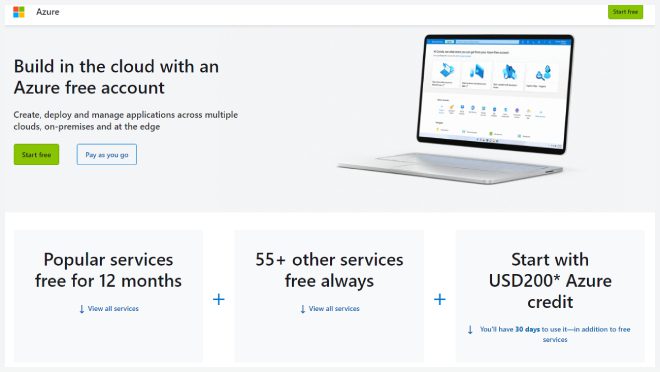

Microsoft Azure is a cloud computing service created by Microsoft for building, testing, deploying, and managing applications and services through a global network of Microsoft-managed data centres. It provides a variety of services, including those for compute, storage, and networking. Some of the key features of Azure include:
Hybrid capabilities: Azure allows for the integration of on-premises and cloud resources, making it easy to move workloads between the two.
AI and machine learning: Azure provides a variety of services and tools for developing AI and machine learning applications, such as Azure Cognitive Services and Azure Machine Learning.
Internet of Things (IoT): Azure provides a variety of services and tools for developing and deploying IoT solutions, including Azure IoT Hub and Azure Stream Analytics.
Security: Azure provides a variety of security features and services, such as Azure Security Center and Azure Active Directory, to help protect customers’ data and applications.
3. Google Cloud Platform (GCP)
GCP is a cloud computing platform provided by Google. It provides a wide range of services for software product development, including computing, storage, databases, and more. Developers can use various programming languages and frameworks such as Java, Python, Go, Node.js, and Angular for front-end development.
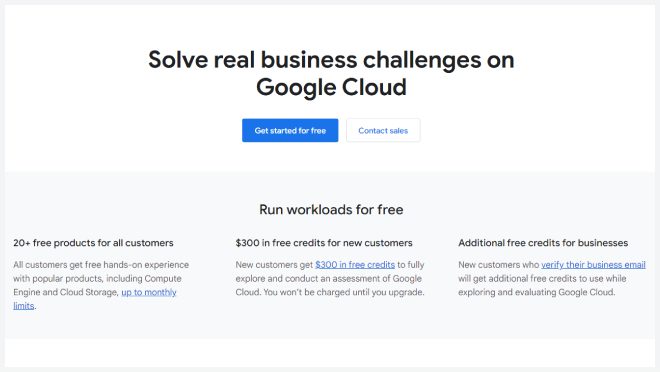

Google Cloud Platform (GCP) is a collection of computing services that run on the same infrastructure that Google uses internally for its end-user products, such as Google Search and YouTube. GCP offers services for compute, storage, and application development that run on Google hardware. Some of the key features of GCP include:
Machine learning and AI: GCP provides a variety of services and tools for developing machine learning and AI applications, such as TensorFlow and Cloud Machine Learning Engine.
Big data and analytics: GCP provides a variety of services and tools for processing and analysing large amounts of data, such as BigQuery and Cloud Dataflow.
Security: GCP provides a variety of security features and services, such as Cloud Identity and Access Management and Cloud Key Management Service, to help protect customers’ data and applications.
4. Firebase
Firebase is a platform provided by Google that allows developers to easily add backend services to their applications. It provides services such as authentication, storage, and real-time databases, which can be used to build a wide range of applications.
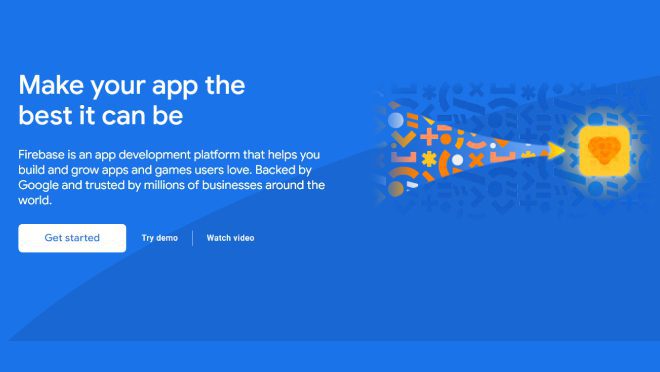

Firebase is a mobile and web application development platform developed by Firebase, Inc. in 2011, then acquired by Google in 2014. Firebase is a Backend-as-a-Service (BaaS) that provides a series of services for developing mobile and web applications, including real-time databases, authentication, and hosting. Some of the key features of Firebase include:
Real-time databases: Firebase provides a real-time database service, allowing for the storage and synchronisation of data in real-time across multiple devices.
Authentication: Firebase provides a variety of authentication services, such as email and password authentication, making it easy to secure applications.
Hosting: Firebase provides a hosting service for web applications, making it easy to deploy and host web applications.
Analytics: Firebase provides analytics service that allow developers to understand user behaviour, demographics, and performance metrics.
5. Docker and Kubernetes
Docker and Kubernetes are containerization technologies that allow developers to package and deploy their code in a portable container. This can be used to create a multi-layered architecture by isolating different components of the system in their own containers and deploying them independently.
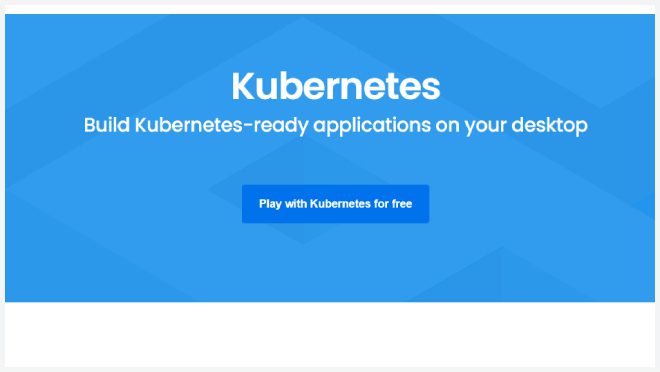

Docker is a containerization platform, meaning it allows developers to package an application and its dependencies together in a portable container. Containers are lightweight and allow for consistent, reproducible builds. Some of the key features of Docker include:
Portability: Docker containers can run on any platform that supports Docker, making it easy to move applications between different environments.
Isolation: Docker containers provide a level of isolation for applications, helping to prevent conflicts between different applications or different versions of the same application.
Docker provides a simple and easy-to-use command-line interface for managing containers, making it easy for developers to work with.
Kubernetes is an open-source container orchestration system for automating the deployment, scaling, and management of containerized applications. It was originally developed by Google and is now maintained by the Cloud Native Computing Foundation. Some of the key features of Kubernetes include:
Automated scaling: Kubernetes can automatically scale the number of container replicas based on demand, making it easy to handle sudden spikes in traffic or demand.
Self-healing: Kubernetes can automatically detect and replace failed containers, helping to ensure the availability of applications.
Load balancing: Kubernetes can automatically distribute traffic between different containers, helping to ensure that applications can handle high levels of traffic.
Ease of use: Kubernetes provides a simple and easy-to-use command-line interface for managing containerized applications, making it easy for developers to work with.
Key Takeaways
The evolution of cloud computing is inextricably linked to the future of software development.
Scalability is one of the most significant advantages of cloud-based software development. Software can be built and delivered on a worldwide scale using cloud computing, with the ability to swiftly and effectively scale up or down as needed.
Businesses and organisations can save money by not having to maintain and upgrade their own gear. Furthermore, many cloud-based services are available on a pay-as-you-go basis, allowing businesses and organisations to only pay for the resources that they utilise.
Another significant area where cloud-based software development shines is collaboration. With the help of cloud-based technologies such as cloud based Document Management Systems, developers can collaborate on projects in real-time, regardless of their location, making it much easier for teams to share ideas, collaborate on code, and address difficulties.
Conclusion
Cloud computing will present new obstacles to software development in the future. Security is one of the most pressing issues. Businesses and organisations will need to guarantee that their data is protected from cyber threats as more sensitive data is stored and processed on the cloud. With the increased usage of artificial intelligence and machine learning, robust security policies will be required to protect against any malicious use of these technologies.




